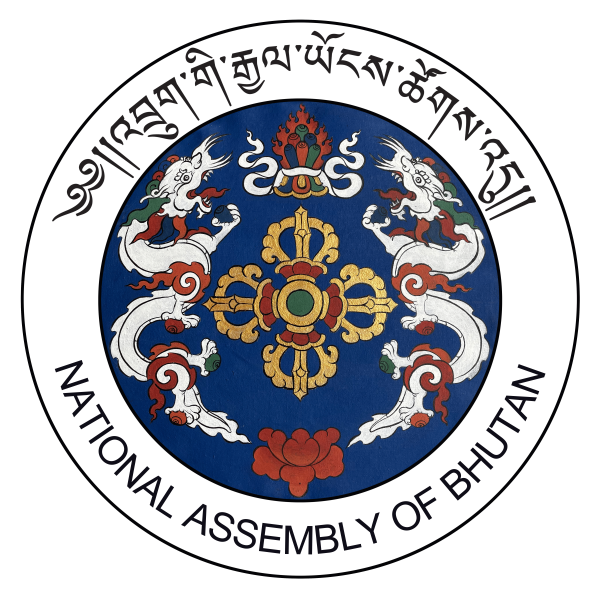
Question Hour for Group B Minsteries
In today’s Question Hour for questions to Ministers in Group B, a total of Five Questions were asked for oral responses - three questions to the Minister for Agriculture and Livestock and two to the Health Minister.
Questions pertaining to the need for subsidized agricultural tools, lack of cold storage in Tsirang, support to highlanders dependent on yak for their livelihoods, rising demand for private medical services, and delays in the construction of the Nganglam hospital were raised.
1.Need for Subsidized Agricultural Tools
The Member from Lamgong-Wangchang highlighted delays in the paddy harvest in Paro due to old combine harvesters and frequent breakdowns. He urged the government to assist farmers in procuring subsidized machinery, citing delays in receiving new equipment from Japan.
In response, the Minister for Agriculture and Livestock acknowledged the challenges faced with limited functional combine harvesters and high costs associated with their procurement and maintenance. He indicated the government’s willingness to subsidize equipment if farmers can bear 50% of the cost and assured ongoing collaboration with the Japanese government to improve agricultural practices.
Regarding mechanization and regional development, the Minister emphasized the ministry’s focus on addressing labor shortages and wildlife conflicts through mechanization initiatives under the Economic Stimulus Plan (ESP). Farmers can access reduced-interest loans to purchase machinery. The Minister also pointed out that regional development plans consider factors such as landscape and land area, with continued government support through land management programs.
2.Agricultural and Livestock Production in Tsirang
The Member for Sergithang-Tsirang Toed raised concerns about the lack of cold storage facilities and warehouses to support increased agricultural and livestock production in Tsirang.
The Minister for Agriculture and Livestock (MoAL) acknowledged the challenges faced by farmers, including difficulties in accessing fair prices for their produce. He informed that the government, aiming for a production target of Nu.5 billion, is addressing these issues through the construction of cold storage facilities and warehouses as part of the food security policy. The Minister urged the public to utilize these costly facilities effectively, which are being developed in various regions.
3.Support for people whose livelihoods depend on Yaks
The Member for Bji-Katsho-Uesu sought updates on support for yak farming.
The Minister for MoAL emphasized the importance of highlanders in preserving Bhutan’s culture but noted challenges such as declining yak populations due to diseases, climate change, and reduced rangelands. To address these issues, the Minister informed that the Ministry has allocated Nu.20 million for artificial insemination services and Nu.30 million for rangeland protection and assured that additional support measures are in the pipeline.
4.Rising Demand for Private Medical Services
The Member for South-Thimphu raised questions about the increasing demand for private medical services.
The Minister for Health clarified that the government remains committed to public healthcare as mandated by the Constitution, with private clinics allowed to supplement public services. Efforts are underway to draft a regulatory bill to oversee private healthcare services, ensuring quality and affordability.
Concerns about retired doctors being unable to practice in Bhutan and consultation fees at the Jigme Wangchuck District Referral Hospital (JWDRH) were also raised. The Minister explained that retired health workers could provide services under proper protocols, which are being developed. Regarding JWDRH, consultation fees during extended hours (4 p.m. to 7 p.m.) are meant to cover additional services, while other healthcare remains free.
5. Delay in Nganglam Hospital Construction
The Member for Nganglam raised concerns about the delay in constructing a hospital in Nganglam.
The Minister for Health explained that hospital expansion is population-dependent. A recent study found insufficient demand to justify a new hospital, but the Ministry is committed to deploying additional doctors to the region next year to enhance healthcare services in Nganglam.




